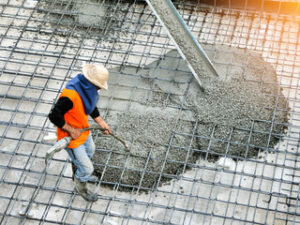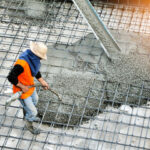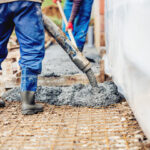The Most Important Step For Home Buyers
Altitude House Buyers must navigate a variety of hurdles, from finding a qualified realtor to understanding the mortgage process. But the most important step is determining what you can afford.

Lenders will look at your income, debt and savings to determine whether you can handle a mortgage. But psychological factors also play a role.
A home purchase is one of the biggest investments a person will ever make. As such, it is important for buyers to understand how they should approach the process and what steps they need to take to ensure a smooth and successful transaction.
It is vital for a buyer to have an idea of what they are looking for before they start viewing homes in person. To save time and energy, a buyer should make a list of what their priorities are: a garage, a yard, the number of bedrooms they need, and so on. It is also a good idea for a buyer to write down what they are not willing to compromise on and what features they want in their new home.
Before beginning the house search, a buyer should consult with their lender to determine how much they can afford. This will help avoid the frustration of finding houses that are out of their price range and will allow them to focus on homes they can realistically afford.
Once a buyer has determined how much they can afford, it is crucial to save money for a down payment, closing costs, and any potential renovations or upgrades. In addition, a buyer should make sure that they have enough cash reserves to cover their mortgage payments for at least a year or more if possible.
A buyer should also research neighborhoods where they are interested in purchasing a home. This will allow them to get a feel for the area and see what amenities are available in that particular neighborhood. For example, if a buyer is concerned about the quality of schools in the area, they should take the time to drive around and visit those schools to see how well the students perform.
During the home-buying process, it is critical for buyers to be respectful of the current homeowners’ property. It is especially important to not make negative comments about the home or its decorations when the seller is present. This could hurt a buyer’s negotiating position later on.
It is also helpful for a buyer to double-check with the seller to determine what appliances, window treatments, and other items will remain in the home after it is sold. Leaving behind these items can be costly for the new buyer and may cause them to lose out on some of the home’s value.
Don’t Fall in Love
When buying a home, emotions can cloud your judgment. Whether you’re excited, happy, nervous, or angry, your emotions can have an impact on your decision-making skills. Especially when it comes to making big financial decisions, you should try to keep your emotions in check.
One of the biggest mistakes that house buyers make is falling in love with a property before they’re ready to buy it. It’s like marrying the first person you go on a date with: not a good idea! Instead, take your time to visit and compare homes before you make an offer. This will help you avoid buyer’s remorse down the road.
Another common mistake is falling in love with a property without considering its location. This includes not only the neighborhood, but also the school district and how far you’re willing to drive for work. Think about your commute before you start house hunting, so that you don’t find a place that’s too far from work or a bad fit for your lifestyle.
When you’re looking at houses, write down a list of features that you need your next home to have. Include things that are absolutely necessary, such as a bedroom for your children or a home office if you work from home, and then create a nice-to-have list of additional features that would be nice but aren’t essential.
Lastly, don’t forget to factor in additional costs, such as property taxes and maintenance expenses. It’s important to have a full picture of your budget before you begin the process, and it’s helpful to consult with your real estate agent about what to expect when you’re shopping for a new home.
Purchasing a home is an exciting experience, but it can also be a complicated and emotional journey. It’s important to avoid these common pitfalls to ensure a smooth, stress-free transaction for everyone involved. By starting early, getting pre-approved for a mortgage, working with an experienced realtor, making wise financial choices, managing your savings, conducting thorough home inspections, and following a structured decision-making process, you can avoid the pitfalls that often lead to disappointment or regret later on.
Don’t Wait for the Perfect Time
Home ownership offers a feeling of stability and belonging, not to mention equity in a property. But, owning a house can also be expensive in terms of mortgage payments and maintaining the property. The benefits of homeownership are well worth the financial commitment, but it’s important to weigh the pros and cons of owning versus renting.
The perfect time to buy a house is dependent on the real estate market and personal circumstances, but waiting too long could be a costly mistake. Market conditions and interest rates can change quickly, leaving you with fewer options or higher costs than you would have otherwise faced.
Waiting for a better deal can be a risky proposition, especially in a competitive housing market with low inventory. The time it takes to shop for houses, find an agent, and get pre-approved for a loan can add up. And, once you have found a property, the process of negotiating and closing can take up to 49 days on average in 2021 according to ICE Mortgage Technology Origination Insight Report.
A major factor in determining whether you can afford to purchase a house is how much you have saved for a down payment, and your debt-to-income ratio (DTI), which includes the amount of income you earn and all of your monthly debt obligations. DTI is a critical calculation lenders use to ensure that you can afford to pay for your mortgage and other living expenses, including utilities and maintenance costs.
Mortgage rates are at historic lows, and it is a good idea to lock in these low interest rates while they last. Purchasing a house now will allow you to avoid future increases in interest rates and save thousands of dollars over the life of your mortgage.
A real estate professional can help you cut through the noise and make smart decisions based on current market conditions and your personal situation. They can assess your needs, goals and budget; expand and reframe your search to areas you might not have considered; refer you to trusted lenders; and guide you through the offer, inspections and negotiations.
The Importance of Finding a Reputable Concrete Contractor
Concrete Contractors McKinney TX prioritize quality, safety, and timely completion of projects. They should be able to communicate clearly, work well with architects and engineers, and provide guidance and expertise throughout the construction process.

Site preparation is the first stage of any concrete project, which involves clearing debris and setting up forms and molds. This step is essential for shaping the final design of the concrete structure.
Concrete contractors use their expertise and craftsmanship to turn construction visions into a reality. They take blueprints and drawings, and develop a plan to execute the project, ensuring that all aspects of the concrete work are taken care of from start to finish. This includes interpreting plans and determining specifications, obtaining permits, estimating costs, and coordinating with other contractors and professionals involved in the construction.
A concrete contractor’s knowledge of the ins and outs of working with concrete helps them to complete projects on time and on budget. They also know how to avoid common pitfalls that can cost time and money, such as improper pours or incorrect finishes. They also understand the unique qualities of different types of concrete and can help clients select the best material for their project.
One of the most important traits for a concrete contractor to have is a passion for the craft. A strong desire to create something that is both enduring and beautiful drives them to do their best work. Concrete is not an easy material to work with, and it takes a lot of skill to make sure the finished product is up to standards.
Having strong communication skills is also important for a concrete contractor. They must be able to effectively collaborate with architects, engineers, and clients, and they should have the ability to lead a team of workers in the field. Additionally, concrete contractors must be safety-conscious and have a strong commitment to following protocols and regulations to prevent injuries or property damage on the job site.
When selecting a concrete contractor, it’s essential to look at their portfolio and past projects. Find out how long they have been in business and what their previous clients have said about their work. Additionally, ask for a list of references and check their licenses and insurance coverage to ensure they are qualified and compliant with local regulations.
When hiring a concrete contractor, be sure to compare prices and services offered to find the right fit for your project. Look for a company that offers quality work, has years of experience, and is licensed and insured. Lastly, make sure to read reviews and check with friends and family for recommendations.
They Perform Maintenance
Concrete contractors are not only responsible for creating a foundation, slab or walkway, but they also perform ongoing maintenance and repairs on these structures. Their work helps ensure the durability and safety of both residential and commercial properties. This is why finding a professional, experienced concrete contractor is so important.
When selecting a concrete contractor, examine their portfolio for previous projects and review online reviews. Taking these steps will help you find a contractor who has the skills to meet your needs and the expertise to ensure your project is completed on time and within budget. In addition, it is crucial to look for a contractor who displays professionalism and provides quality customer service.
Having the proper licensing and certification is another important consideration when hiring a concrete contractor. Licensing requirements vary by state, but generally they include an exam, background check, references, and a bond. To verify a contractor’s credentials, contact their licensing agency and ask for a copy of their license or certificate.
Once you’ve found a reputable contractor, it’s a good idea to get a detailed contract for the project. This document should outline the project details, timelines, costs, warranties, and terms of service. It is important to review the contract carefully to make sure you understand all of the responsibilities and commitments of both parties.
Regular maintenance can help extend the life of concrete surfaces and minimize costly repair services in the future. In fact, addressing minor issues early can prevent deterioration and other serious problems from developing. For example, resealing a sidewalk or driveway every three years can protect the surface from weather damage and keep it looking new.
A passion for concrete and a dedication to providing high quality work are essential traits for a successful concrete contractor. Additionally, this profession requires a strong attention to detail and the ability to manage the complexities of construction projects. It is also a good idea for concrete contractors to carry general liability insurance, which can provide coverage for third-party bodily injury or property damage claims as well as legal fees.
They Perform Repairs
Concrete contractors are specialized professionals who handle the construction and repair of concrete structures. They know how to build and maintain these structures so that they are structurally sound, safe, and look professional. They are also able to conform to building codes and ensure that their work is high-quality. If you are planning to hire a concrete contractor, make sure you review their credentials and ask for references from previous clients. You can also use online reviews to assess the quality of their work.
The deterioration of concrete surfaces is inevitable, and repairs are necessary when cracks and other damage occur. Whether they are caused by soil erosion, poor installation, or heavy traffic, these issues can cause problems with the function and aesthetics of your property. Professional contractors have the experience to identify the underlying issue and determine the best course of action for repair.
Whether you need to repair a sidewalk, patio, or driveway, it is important to choose the right concrete contractor for the job. A qualified contractor will be licensed, insured, and will have extensive experience handling a variety of projects. They will also have the proper equipment and knowledge to complete the project quickly and efficiently.
Once you have selected a contractor, be sure to request a written contract before beginning the project. This document will outline the scope of work, timelines, costs, and warranties. A well-written contract will protect your interests and help prevent disagreements down the road.
It is also a good idea to ask potential contractors about their warranty policies. A company that stands behind its work will offer a detailed warranty that covers workmanship and materials. This is a sign of confidence in the quality of their services and shows that they are willing to go above and beyond to guarantee customer satisfaction.
Hiring a professional concrete contractor can save you time, money, and headaches in the long run. These experts specialize in their craft and have the necessary tools to ensure that your concrete project is done correctly the first time. In addition, they will have extensive industry expertise from hundreds or thousands of past projects and can recommend the best strategies for your specific needs.
They Perform Structural Repairs
Concrete contractors perform a variety of repairs and maintenance tasks to extend the life of concrete structures. They may repair surface cracks and other minor damage using epoxy injection or a concrete overlay, or they can restore structural integrity to damaged or degraded concrete through structural reinforcement or resurfacing. They also install drainage systems to address problems with water pressures beneath floors or behind walls, and they ensure that concrete is properly cured to prevent future structural issues.
Choosing a reputable concrete contractor requires research and careful consideration. Look for a company that prioritizes clear communication and provides transparent quotes. Ask to see examples of their previous work and discuss the types of projects they’ve worked on, paying special attention to any structural repair or renovation work. Ideally, your contractor should be able to provide references from other local homeowners with similar construction needs and a history of satisfactory work.
Aside from addressing cracks and other cosmetic issues, concrete contractors can also improve the durability of a home’s patios, driveways, sidewalks, and pool decks. They can help ensure that these structures are properly poured to prevent structural instability, and they can add decorative touches to enhance the visual appeal of these outdoor living spaces.
When choosing a concrete contractor, it’s important to consider their experience and technical expertise. A seasoned contractor understands the unique challenges that come with each installation project and can anticipate any potential problems before they arise. They should be able to collaborate effectively with architects, engineers, and other professionals in the construction industry to develop concrete construction plans and specifications that meet the requirements of each project.
When choosing a concrete contractor, it’s crucial to find a team that is dedicated to the safety of themselves and their clients. A reliable team will take the time to review and update their safety policies regularly to ensure that they are compliant with industry regulations and best practices. This helps to ensure that their employees are safe while on the jobsite and that their clients can expect a high standard of quality when it comes to the installation or repair of concrete structures at their homes or places of business.
Why You Should Have Your Plumbing Inspected
When pipes leak, it can cause damage that requires expensive repair and replacement. Regular maintenance can help prevent problems.

Plumber Westminster does much more than unclog toilets and fix sinks. They design piping systems that disperse water, remove waste, and connect heating and cooling systems. They also inspect plumbing fixtures and pipes for damage and leaks.
A plumbing inspection involves a close examination of all the pipes and fixtures within your home. This includes the water heater, kitchen and bathroom sinks, dishwasher, washing machine, toilets, and any other water-using appliances. In addition, plumbers inspect the drain lines and sewer systems for any leaks or blockages. This is especially important for older homes with aging pipes. Leaks and blocked drains can cause serious damage to your property if left untreated. In some cases, a simple leak or blocked drain can even lead to flooding in your home. These issues are easy to ignore when they occur intermittently, but a regular plumbing inspection can catch them before they become major problems.
Besides being costly, a faulty plumbing system can also pose health and safety risks for your family. Hidden leaks can result in mold growth that affects indoor air quality and triggers respiratory problems. Additionally, if the leaks are located near electrical fixtures, they can create a fire hazard. A professional plumbing inspection can identify these risks and take the necessary steps to correct them.
Plumbing inspections can also save you money on your utility bills. Leaky faucets, toilets, and pipes waste gallons of water every day. A plumber can repair these leaks and improve your home’s water efficiency, saving you money on your monthly bills.
In addition, a regular plumbing inspection can help you extend the life of your pipes and fixtures. By identifying any parts that are approaching their lifespan, you can have them replaced before they break down completely, which saves you money on repair costs and replacement expenses.
If you’re thinking of buying a new home, it’s essential to have the plumbing inspected before making the purchase. An inexperienced homeowner may not notice any issues with the plumbing, but a professional plumber can spot problems before they escalate into expensive repairs.
A plumbing inspection can be performed in conjunction with a home inspection or on its own. A typical plumbing inspection will include testing for water pressure, checking the location of leaks, evaluating fixture condition and functionality, and testing the sewer line for any signs of clogs or backflow. The plumber will also check the drainage system for any clogs or issues with the sump pump. In some instances, a plumber may also use video inspections to examine hard-to-reach areas of the plumbing system, such as under sinks and in the basement.
Water Pressure Testing
Water pressure testing is the process of evaluating the integrity and functionality of your home plumbing drain lines. By applying a controlled amount of water pressure to the drain lines, plumbers can determine if there are leaks, what size the leak is, and even locate its exact location within the pipe.
To perform a water line pressure test, plumbers first shut off all faucets and water-using appliances in your home (this includes your washing machine and even your ice maker). Then the plumber connects a pressure gauge to an outdoor spigot or to a convenient location where it can be easily monitored (like inside of a garage or basement). Then the tester gradually increases the pressure by turning on the water supply and monitoring the pressure with the gauge. Once the plumber reaches the desired test pressure, they will turn off the water supply and monitor the pressure for about 2 hours.
The plumber will be looking for any drops in the water pressure which can indicate a leak. A drop in water pressure can also be a sign that the plumbing drain lines are overloaded and that there may be a large amount of debris blocking the flow of water. The plumber can then locate the blockage, diagnose a potential issue and perform any necessary plumbing drain line repair or replacement.
Another use for water pressure testing is to evaluate the permeability of soil or rock formations prior to conducting any type of ground modification program. The plumber will insert the test pipe into the ground and then slowly increase the pressure while watching for a sudden drop in pressure that indicates air has entered the leak. This can help the plumber know if a leak is located in the existing pipes or if they will need to dig to find the problem.
Hydrostatic plumbing tests are a crucial part of maintaining your plumbing system, especially in areas with expansive clay soils that can cause foundation and plumbing problems. By having a professional conduct these inspections, homeowners and business owners can reduce the risk of leaks and other issues in their drain and plumbing lines and avoid costly repairs down the road.
Water Flow Rate Testing
As the weather gets hotter, well water pumping speeds increase, and a higher flow rate can strain the system and lead to pressure issues in your home. Having your water flow tested by a professional can help you determine the optimal water pressure for your household needs, ensuring that there is always enough pressure to power your appliances and meet your household’s demands.
Consistent Water Supply
A lower water flow rate can lead to a shortage of water at critical times, such as during showers or halfway through washing the dishes. This can be frustrating and inconvenient, not to mention a significant drain on your household’s energy bills. A routine well flow test can ensure that your household’s daily water demand is met, preventing any unnecessary hassle or stress.
Low water flow rates can also be caused by a blockage or build-up in your pipes. Mineral deposits and debris can accumulate over time, restricting the flow of water through your pipes, causing poor water pressure. Having your pipes cleaned or descaled on a regular basis can prevent these problems from developing and improve your household’s water flow.
If you are considering purchasing a home with a private well, having a well flow test done can help ensure that your household’s water needs will be met by the well’s capabilities and design. A professional can evaluate your household’s average water consumption and design your well to produce an adequate number of gallons per minute.
Testing the well’s flow rate is important for residential homeowners that use a private water well for their home’s plumbing systems. A well flow test can help determine if the current well system is able to keep up with a homeowner’s water usage demands, and whether any adjustments or repairs need to be made to the well pump and water distribution system.
Performing a well flow test is simple, but requires some knowledge of how to do it and the correct equipment. The first step in a well flow test is to take a static pressure reading at the static/residual hydrant. This pressure must be a minimum of 10% lower than the reading taken at the flow hydrant. The next step is to open the hydrant and run a full well flow test. When the well flow test is complete, close the hydrant slowly.
Drainage and Venting Inspection
Plumbing inspectors assess the condition of water and waste pipes, fixtures like sinks, toilets and bathtubs, and appliances like dishwashers and water heaters. They look for leaks, signs of corrosion and other problems. They also check for proper installation and code compliance. Plumbers collaborate with other professionals such as construction teams and architects to ensure plumbing is seamlessly integrated into building projects and meets all required standards and regulations.
Pipes are usually hidden from view, running through walls, under floors and in the ground. Leaking or broken pipes may not be obvious until the system stops working or a meter registers high water usage. Professional plumbers have specialized tools and training to identify problem areas, even those that are out of sight or hard to reach. They can use noninvasive methods like video camera inspection to get a close-up look at inside pipes without digging up the entire yard or tearing open walls.
After examining visible supply lines, drain pipes and fixtures, a plumber will test the water pressure at each fixture and run a camera through the vents to see what’s going on underground. They’ll also time how long it takes for a sink, tub or shower to drain to test the drainage rate. Slow-draining or gurgling noises indicate potential obstructions that a plumber can clear.
Unsafe and inefficient plumbing can lead to clogged drains, sewer backups and other costly problems. Inspectors look for issues such as insufficient slope of waste drain lines, faulty venting, improper material usage and other factors that require correction.
Regular inspections help homeowners avoid expensive repair bills and maintenance costs. They can spot small problems that are easy to fix, such as a clogged faucet or worn-out washers and valves. Inspectors can also recommend energy-efficient upgrades, such as water-saving fixtures and piping materials that reduce waste and utility bills.




